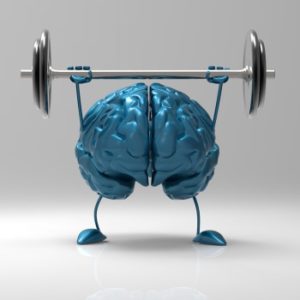 Exercising the brain is every bit as important as exercising your body for your overall health and to stave off memory loss and the risks of dementia and/or Alzheimer’s disease.
Exercising the brain is every bit as important as exercising your body for your overall health and to stave off memory loss and the risks of dementia and/or Alzheimer’s disease.
Your memory is totally dependent on the strength and health of your brain and staying mentally sharp as you age is going to play a huge factor in your future mental acuity. It’s easier to stay sharp when you’re young and studying and working, but when you retire or cut down on activities, it may not be as easy.
It’s possible to boost your brain power no matter what your age. Your brain can benefit from exercise at any age, the same as your body can. The proper stimulation can open those neural paths to any amount of learning you want and enhance your memory.
Exercising your brain can be as simple as studying a language or learning something new. It may take more of an effort than when you were younger, but the results are well worth it.
Challenge yourself with brain-boosting activities which mandate your attention and your time. Get outside of your comfort zone and engage in an activity that’s unfamiliar to the skills you’ve already developed.
When you’ve mastered a new skill, don’t forget to reward yourself. That communicates to the brain that you’re enjoying the benefits of the skill or activity and that it’s enjoyable and very satisfying to you.
Also, exercise your body at the same time you’re exercising your brain. Physical exercise releases chemicals in the brain which can greatly enhance your brain power and memorization abilities.
Make sure you get plenty of sleep as you age. Sleep is the brain’s elixir and can have a huge effect on your creativity, energy, focus and ability to think critically and perform at your best.
Keeping in touch and socializing with friends and family may also serve to stave off memory loss. Humans are a social species and isolation may lead to depression and loneliness that could have an effect on your brain and memory skills.
Minimize stress in your life. Stress can affect the aging in mental and physical ways. Learn some stress-reducing methods you can use on a regular basis and make plans to get rid of stress factors that could lead to memory and physical problems.
You’ve likely heard the old adage, “if you don’t use it, you lose it.” That’s never been more relevant than as it applies to exercising the brain. Change your routine, learn something new and challenge your brain to keep memory loss at bay.






